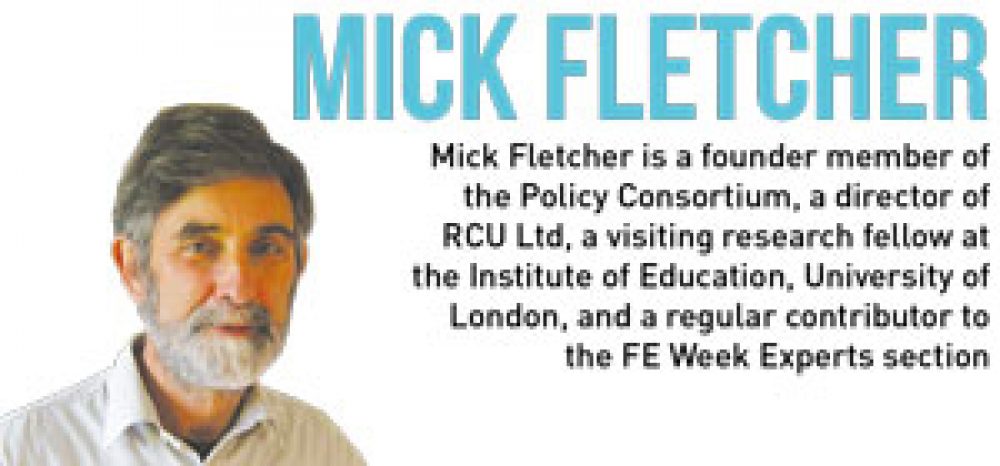In light of the Chancellor’s announcement he wanted to see £900m of in-year savings split evenly between the Department for Business, Innovation and Skills (BIS) and the Department for Education (DfE), Mick Fletcher considers how FE might be affected — and how to lessen that effect.
What we know is that the two education departments, BIS and DfE, are each being asked to make an extra in-year cut of £450m — almost a third of the total sum being sought in the emergency budget planned for July.
What we don’t know is where the cuts will fall; but here’s a prediction. In this round and in the subsequent autumn spending review the Chancellor will find it easier to pick on provision for the weak and disadvantaged rather than tackle the big vested interests defending much larger sums.
We will probably see action on the manifesto pledge to reduce provision of full time FE at level two and below, hidden behind a fig leaf of increased apprenticeship opportunities.
It seems likely that we will see a further move from grant funding to loans, once again spun as ‘empowering the learner’.
Other soft targets could be learner support funds (less need as student numbers fall?) or adult and community learning (replaced by the big society in the form of the University of the Third Age). A further blow to the last remnants of social partnership represented by sector skills councils must be high on the hit list.
There are however a couple of sacred cows that could yield much larger savings but are far less likely to be touched. The biggest is the long running scandal of small school sixth forms, surviving only by robbing resources from the lower school.
If government has pledged to ring-fence funding for pupils up to the age of 16 it seems only fair for schools to be forced to do the same, leaving sixth form pupils to be taught efficiently and effectively in sixth form and tertiary colleges.
Since, shockingly, the average class size for the 16 to 18 phase in schools is less than half of that in primary schools, there are serious savings to be made from the £2bn or so in this bit of the schools budget.
Although it is both logical and feasible the chances of sensible reform of sixth form provision are vanishingly small. They are only marginally greater for tackling the second great vested interest; the unholy alliance of providers and employer bodies that argue strenuously against any attempt to make employers pay their share of training costs.
We will probably see action on the manifesto pledge to reduce provision of full time FE at level two and below, hidden behind a fig leaf of increased apprenticeship opportunities
It cannot be right however that FE colleges are more dependent on state funding than they were at the time of incorporation over 20 years ago, or that private providers are even less likely to secure co-funding.
It is true that demanding cash contributions towards the cost of providing apprenticeships and adult training risks lessening demand, but that risk is faced with equanimity elsewhere in the adult skills budget.
Under Matthew Hancock’s watch as Skills Minister the government developed a firm co-funding policy based around a generous two-for-one funding offer — far better than the deal for individuals.
If they can’t make it stick now, with an austerity budget and private sector growth they might as well abandon the whole idea forever.
The third big vested interest that the Chancellor faces is his own ministerial colleagues. At the very same time that they demand cuts in well-proven and valuable provision they indulge in an endless stream of pet projects for which there is little evidence of either need or efficacy.
Significant savings could be made if ministers held back from schemes such as the employer ownership pilots, national colleges, free schools in areas with no shortage of places or differing varieties of technical schools that duplicate what FE colleges can deliver. The chances, however, seem slim.
Finally, it is just possible that savings might be demanded from one quarter normally thought untouchable.
There is a growing body of opinion that sees the £200m or more spent on Ofsted annually as poor value for money. If he is bold the Chancellor could perhaps achieve the impossible — an education cut that is welcomed by schools and colleges.









Your thoughts